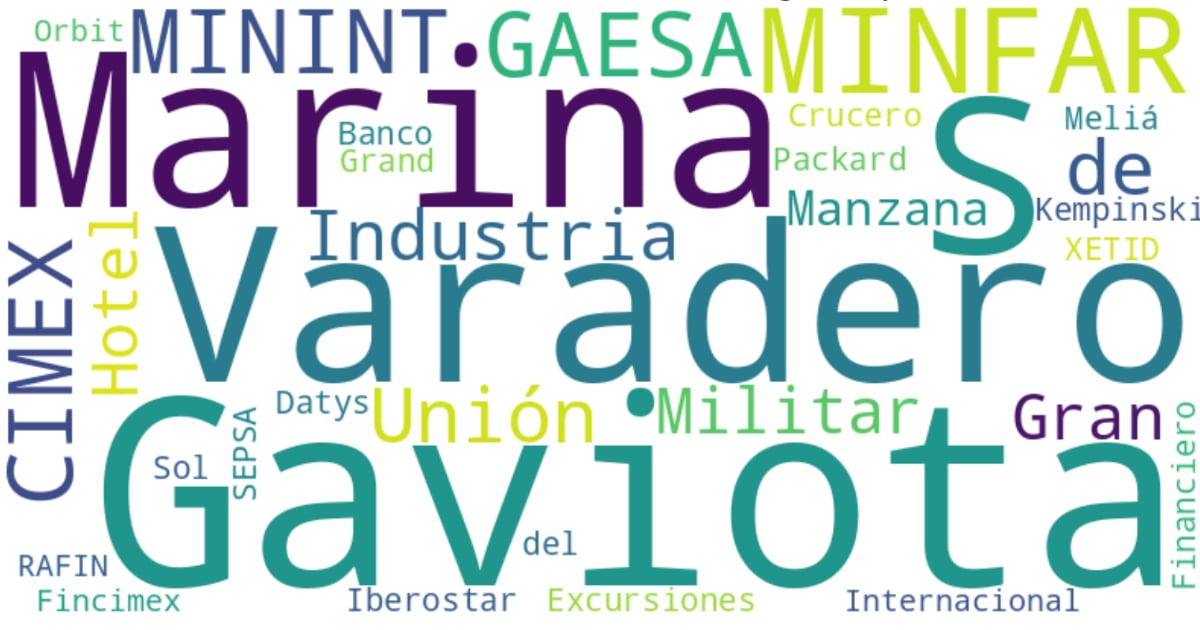The U.S. Department of State has released a revised list of Restricted Cuban Entities, barring direct financial transactions with them under the Cuban Assets Control Regulations (CACR). This update targets additional entities tied to Cuba's military and security apparatus, intensifying the American government's sanctions.
The policy aligns with the sanctions framework outlined in National Security Presidential Memorandum 5 (NSPM-5), which directs the State Department to identify entities controlled by or acting on behalf of Cuban military, intelligence, or security services. Consequently, the Department of Commerce's Bureau of Industry and Security (BIS) has announced it will generally deny export or reexport applications for items destined for these listed entities.
Background on the Sanctions
Since the enactment of NSPM-5 in 2017, the U.S. administration has maintained strictures on financial dealings with Cuban state enterprises linked to the Armed Forces and the Ministry of the Interior. However, in January 2025, the restricted entities list was temporarily suspended following the issuance of National Security Memorandum 29 (NSM-29). Nevertheless, on January 20, 2025, the current U.S. President reversed this decision, reinstating the list under NSPM-5 guidelines.
Impact of the Helms-Burton Act
The reestablishment of the Restricted Cuban Entities List coincides with the U.S. government's recent activation of Title III of the Helms-Burton Act. This provision enables U.S. citizens to sue foreign companies in American courts if they conduct business with properties in Cuba confiscated after the revolution. This move further tightens the economic noose on the Cuban regime, hindering foreign investment on the island and escalating pressure on the Cuban government to implement political and economic reforms.
Political Pressure from U.S. Congress
Since late 2023, Senator Marco Rubio has been a leading advocate for updating the Restricted Cuban Entities List. Rubio argued for the Biden administration to include more regime-controlled companies, particularly those in the financial and tourism sectors, which continue to benefit Cuba's military and intelligence structures. The recent expansion of the list addresses these political demands for a tougher stance against the Cuban totalitarian regime, gaining further traction with Rubio's appointment as Secretary of State under the Trump administration.
Effects on Remittances and Cuban Financial Sector
Among the newly listed entities is Orbit S.A., a company involved in remittance management in Cuba. Its inclusion could significantly impact money transfers from the United States to the island, as it prohibits American companies from engaging in transactions with Orbit S.A. This adds to previous restrictions on Fincimex and other entities involved in remittance reception in Cuba, complicating the ability of Cubans to receive funds from family abroad.
Entities Impacted by the List
The updated list includes key Cuban ministries and business groups, such as the Ministry of the Revolutionary Armed Forces (MINFAR) and the Ministry of the Interior (MININT), along with corporations like GAESA, CIMEX, Gaviota, and the Union of Military Industry. Notable hotels and tourist agencies, such as Gran Hotel Manzana Kempinski and Marina Gaviota Varadero, are also affected. Security and telecommunications firms like SEPSA and XETID, as well as financial entities like Banco Financiero Internacional S.A. (BFI) and RAFIN S.A., face restrictions.
The inclusion of these entities implies that direct financial transactions with them are prohibited, and any export or reexport of goods to these companies will be rejected by U.S. authorities.
Consequences for Cuba's Emerging Private Sector
The State Department justified the action by stating that transactions with these entities disproportionately benefit Cuba's military and security forces, to the detriment of the Cuban people and the island's emerging private sector. The U.S. administration maintains that this policy aims to prevent state enterprises' revenues from sustaining the Cuban government's repressive apparatus.
The complete updated list of Restricted Cuban Entities is accessible on the U.S. Department of State's website. For further inquiries, the Department has provided contact information for the Office of Cuban Affairs Coordinator: Robert Haas, phone: 771-204-7384, email: HaasRZ@state.gov. This update underscores Washington's continued pressure on the Cuban government amid ongoing bilateral tensions and trade restrictions impacting the island's economy.
Understanding U.S. Sanctions on Cuba
What is the purpose of the Cuban Assets Control Regulations (CACR)?
The CACR aims to restrict financial transactions with entities linked to the Cuban government to pressure the regime into political and economic reforms.
How does the Helms-Burton Act affect foreign companies?
Title III of the Helms-Burton Act allows U.S. citizens to sue foreign companies involved in business with properties in Cuba that were confiscated after the revolution.
Who is impacted by the inclusion of Orbit S.A. in the Restricted List?
Orbit S.A.'s inclusion affects remittances, as U.S. companies are barred from transacting with it, complicating money transfers to Cuba.
What is the role of Senator Marco Rubio in the updated sanctions?
Senator Marco Rubio advocated for a stricter list of restricted Cuban entities, emphasizing those in financial and tourism sectors that benefit the regime.
